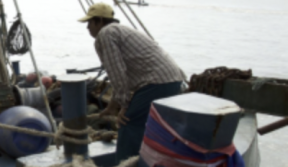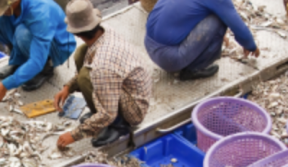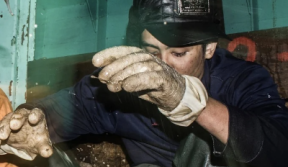Publication Date:
To Prime Minister Prayuth Chan-ocha:
We, a coalition of international labor and human rights organizations, wish to express our sincere condolences about the tragic bombing that took place this week in Bangkok. It was a brutal attack on a country about which we all care very deeply. We also wish to convey our concern about the prosecution of migrant and worker rights defender Andy Hall. The charges against Mr. Hall were brought in relation to the publishing and dissemination of a report to which Mr. Hall contributed research by a Finnish NGO called Finnwatch on conditions at Natural Fruit Factory. Natural Fruit has initiated two criminal defamation charges, a criminal charge under the Computer Crimes Act and two civil defamation actions. Unfortunately, the Thai government effectively endorsed the criminal proceedings against Mr. Hall when the Office of the Attorney General joined as co-prosecutor with Natural Fruit in the criminal cases.
For more than a year, we have called for the unjust and abusive charges against Mr. Hall to be withdrawn. August 24th marks a critical point when a decision will be made as to whether to indict Mr. Hall on the most severe of these charges. Persecuting researchers and whistle-blowing activists who reveal cases of labor exploitation is hardly a recipe for effective work against human trafficking. If Thailand is serious about improving its record in combatting human trafficking and proving it takes its human rights obligations seriously, you should act to ensure that such human rights defenders are protected against retaliation, including judicial harassment. .
We were particularly shocked and dismayed by the action of the Office of the Attorney General in January to appeal the court’s dismissal of the first case against Mr. Hall, which had been thrown out on October 29th, 2014 due to an unlawful interrogation. The Attorney General's s appeal in that case, involving an interview Mr. Hall gave to Al Jazeera from Yangon, Myanmar, has no merit and should be dropped. Officials within your government have repeatedly stated to NGOs in various meetings on this matter that the Thai government is an impartial observer, unable to interfere as the case moves through the judicial system, but appealing this case seems punitive and unnecessary. We call on your government to withdraw its appeal before a decision is issued on September 25th, 2015.
Further prosecution of the charges against Mr. Hall will damage Thailand’s international image and violate Thailand’s obligations under international law. Thailand is obligated to protect against human rights abuses by business enterprises, including cases in which businesses use domestic laws to intimidate human rights advocates and suppress freedom of expression. This duty has been recognized as part of states’ obligations under the International Covenant on Civil and Political Rights (ICCPR), which Thailand has ratified, as well as the UN Guiding Principles on Business and Human Rights, and has been affirmed by a number of decisions of international human rights bodies, including the UN Human Rights Council. The ICCPR also requires Thailand to ensure freedom of expression and the right to a fair trial.
The criminal defamation charges brought against Mr. Hall contravene the ICCPR. As emphasized by the UN Special Rapporteur on Freedom of Expression in 2012, “criminal prosecution for defamation inevitably becomes a mechanism of political censorship, which contradicts freedom of expression.” The Special Rapporteur accordingly “call[ed] on all States to repeal criminal defamation provisions allowing prosecution of authors of media content . . . .” Regardless, Thailand has continued to allow the criminal defamation cases against Mr. Hall to proceed.
The charges under the Computer Crimes Act also present serious concerns centered on the law’s overly broad and vague wording as well as its threat of disproportionately harsh criminal sanctions. Finally, Mr. Hall is being denied protection due to him as a human rights defender pursuant to the UN Declaration on Human Rights Defenders, which recognizes the legitimacy and importance of the activities of human rights defenders, including their right to expose violations of rights, and calls on all States, including Thailand, to ensure that human rights defenders can carry out their human rights research and advocacy without fear of reprisals.
The UN Guiding Principles on business and human rights provide that States have the duty to protect human rights against human rights abuses by corporations and reaffirms that to meet this duty, States should, “a) Enforce laws that are aimed at, or have the effect of, requiring business enterprises to respect human rights, and periodically to assess the adequacy of such laws and address any gaps…” Accordingly, the Thai government has the obligation to protect against human rights violations perpetrated by business enterprises such as Natural Fruit. This includes preventing business enterprises from manipulating domestic laws to intimidate, punish the lawful exercise of freedom of expression and stifle research into labor abuses in Thailand.
Thailand’s failure to uphold human rights obligations in this case has already had very real consequences. In deciding to leave Thailand on Tier 3 of the 2015 Trafficking in Persons (TIP) report, the U.S. Department of State noted the defamation proceedings against Mr. Hall as a key consideration, noting that “the prosecution of journalists and advocates for exposing traffickers . . . undermined some efforts to identify and assist trafficking victims and apprehend traffickers.” Mr. Hall’s case has made world news as “an international and national disgrace,” and hundreds of thousands of people from around the globe have sent messages to Natural Fruit and officials within your government urging for the charges to be dismissed.
The best way to bring an end to this negative publicity and fulfill Thailand’s obligations under international law is to ensure that Andy Hall is released from all charges stemming from his human rights work, and to, “cease prosecuting criminal defamation cases against researchers or journalists who report on human trafficking,” in accordance with recommendations from the TIP Report. We also call on the Thai government to comply with the ICCPR, the Declaration on Human Rights Defenders, and the Universal Declaration of Human Rights to ensure that criminal defamation offenses, the Computer Crimes Act, and civil defamation laws are not used to punish lawful freedom of expression.
We hope that the government of the Kingdom of Thailand will protect the right to freedom of speech and not curtail legitimate research that documents when companies mistreat workers and violate labor laws. Moreover, we wish to see Thailand promote workers’ rights by ensuring that companies are well regulated to provide safe and healthy working conditions for workers.
We look forward to your response.
Sincerely,


